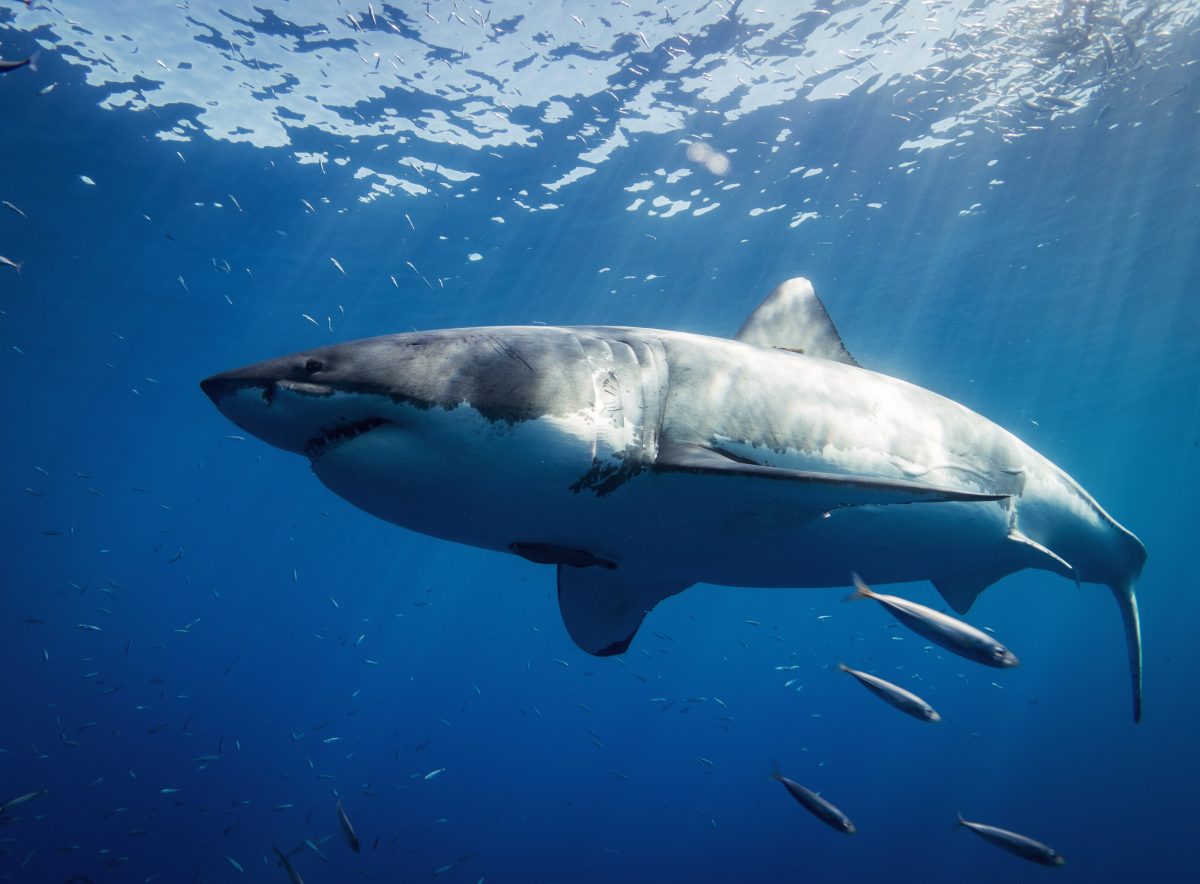
A decade ago in Western Australia, its Shark Monitoring Network began using new technology to provide alerts on 326 tagged sharks. Photo: Gerald Schombs.
16–22 October 2013
1. This week 10 years ago, the Federal Government announced a 20-year strategic plan for Antarctic and Southern Ocean research to ensure its investments would deliver additional jobs for Tasmania and see it remain the international hub for Antarctic expeditions and research. The government committed $24 million over three years to establish a new Centre for Antarctic and Southern Ocean Research; $25 million over five years for the Antarctic Climate and Ecosystems Cooperative Research Centres; and $38 million for upgrading the Hobart International Airport to further strengthen the economic, tourism and scientific capacity of Tasmania. Australia has had a strong presence in Antarctica for more than 100 years, carrying out important scientific research and working to protect this unique and fragile environment.
2. Then Victorian Premier Denis Napthine and Minister for Planning Matthew Guy launched Plan Melbourne, the planning and transport blueprint for the city’s growth to the year 2050, under which a new statutory body, the Metropolitan Planning Authority, would play a critical role in managing and delivering the Plan. Mr Guy said the Plan included a permanent urban growth boundary to limit urban sprawl by distributing population growth to regional areas such as Bacchus Marsh, Ballan, Broadford and Kilmore, while Neighbourhood Residential Zones would protect at least half of Melbourne’s residential zoned land from highrise apartment development.
“Melburnians have made it clear that we can’t keep growing the urban boundary,” Mr Guy said.
3. Also in Victoria, then Minister for Agriculture and Food Security Peter Walsh announced development of an action plan to support and guide the long-term growth of game hunting and improve access to sustainably managed game resources. Mr Walsh said the plan would include consideration of legislation, regulation, service delivery, stakeholder relationships and institutional arrangements that impacted hunting and game management in Victoria. Mr Walsh said the 2013–14 State Budget allocated $8.2 million to establish and operate an independent Game Management Authority to improve the effectiveness of game management and promote responsible game hunting.
4. The Queensland Parliament passed the Vicious Lawless Association Disestablishment Bill that would see mandatory jail terms of up to 25 years for criminal motorcycle gang members. Then Attorney-General and Minister for Justice Jarrod Bleijie said the tough response would make Queensland’s streets safer and would act as a deterrent to further offending, including through the creation of three new offences targeting criminal gangs: knowingly gathering in groups of three or more members in a public place (including riding); going to banned locations, such as clubhouses; and promoting or recruiting for the organisation.
“We are also increasing penalties for existing offences if they are committed by criminal motorcycle gang members,” Mr Bleijie said.
5. Changes to South Australia’s Firearms Act signalled a crackdown on gun crime, including a new offence of trafficking of firearms, carrying a maximum 20-year prison sentence; a $75,000 fine or 15 years jail for those unlawfully in possession of a loaded firearm; and greater search powers for police and the authority to seize equipment used for manufacturing and altering firearm parts. Then Premier Jay Weatherill said while South Australia had some of the toughest firearm controls in the world, more needed to be done to prevent and tackle gun crime.
“These reforms send a very clear message that the trafficking, supply, unlawful possession and use of illegal firearms will not be tolerated,” Mr Weatherill said.
6. And a decade ago in Western Australia, its Shark Monitoring Network began using new technology to provide alerts on 326 tagged sharks. Then Minister for Fisheries Troy Buswell said the monitoring network had been expanded and the network now used about 320 seabed and 20 satellite receivers to monitor tagged sharks, with alerts being delivered within less than two minutes of a shark being detected by the network.
“These upgrades mean this summer, response agencies will have even more time to close a beach and alert water users of potential shark hazards, with alerts from receivers being sent faster,” Mr Buswell said.




